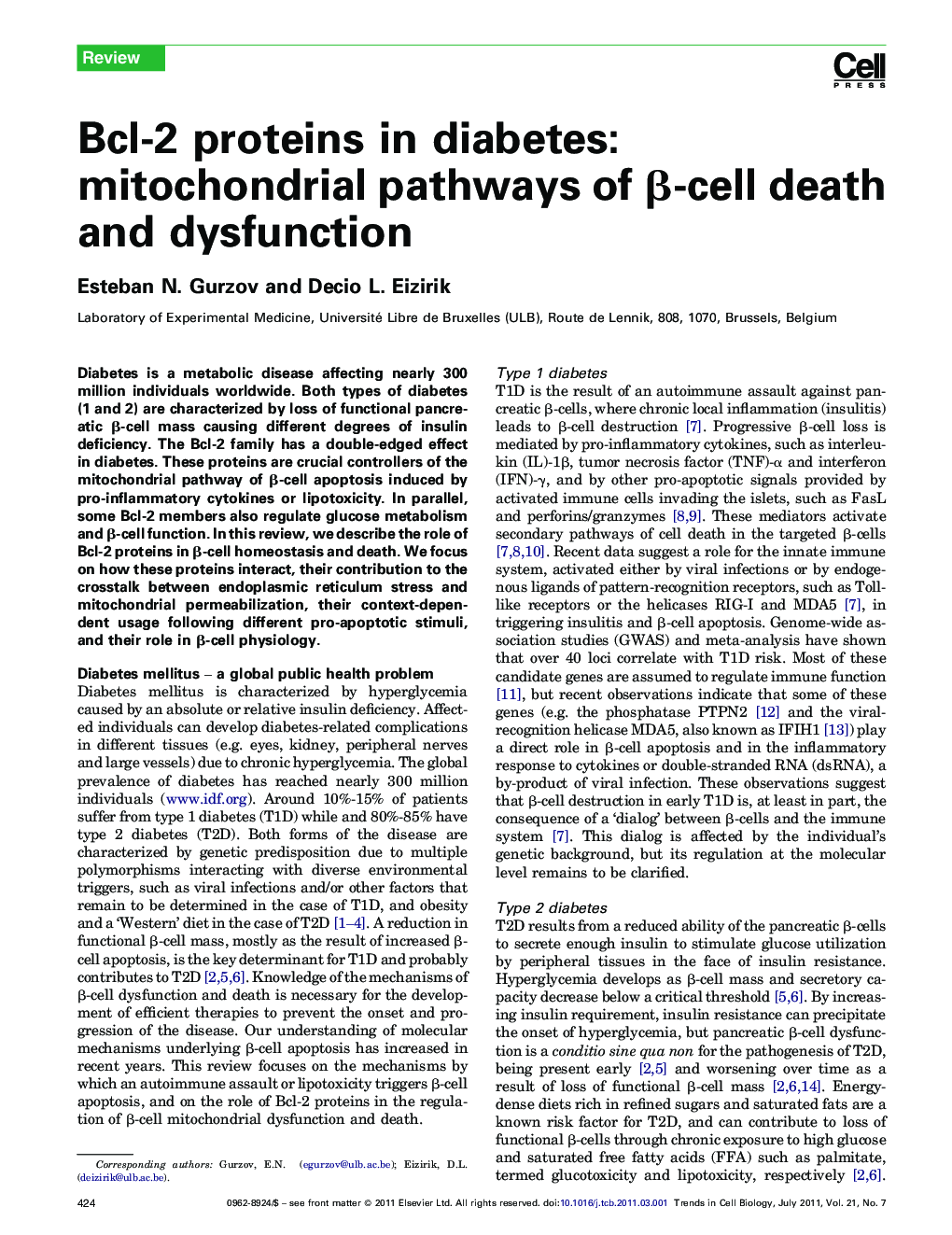| Article ID | Journal | Published Year | Pages | File Type |
|---|---|---|---|---|
| 2204830 | Trends in Cell Biology | 2011 | 8 Pages |
Diabetes is a metabolic disease affecting nearly 300 million individuals worldwide. Both types of diabetes (1 and 2) are characterized by loss of functional pancreatic β-cell mass causing different degrees of insulin deficiency. The Bcl-2 family has a double-edged effect in diabetes. These proteins are crucial controllers of the mitochondrial pathway of β-cell apoptosis induced by pro-inflammatory cytokines or lipotoxicity. In parallel, some Bcl-2 members also regulate glucose metabolism and β-cell function. In this review, we describe the role of Bcl-2 proteins in β-cell homeostasis and death. We focus on how these proteins interact, their contribution to the crosstalk between endoplasmic reticulum stress and mitochondrial permeabilization, their context-dependent usage following different pro-apoptotic stimuli, and their role in β-cell physiology.
